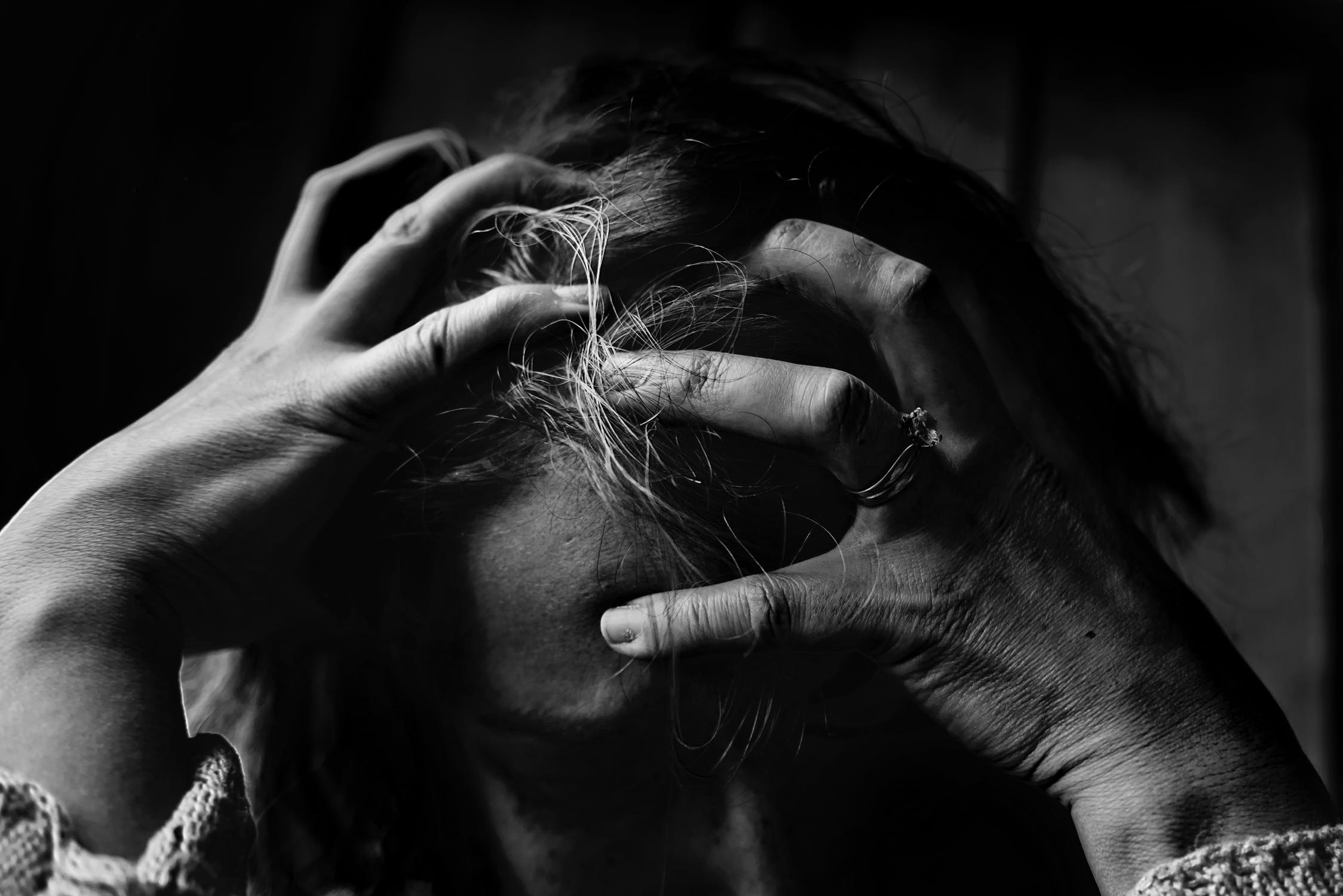
Experiencing a level of anxiety is just part of the human condition. You may feel nervous before giving a speech, taking a test, or getting medical results. However, there is a difference between feeling anxious and having an anxiety disorder.
Anxiety Versus Anxiety Disorder
Anxiety produces physical sensations that put your body into alert mode. For most people, these sensations are temporary and are well tolerated. With an anxiety disorder, these signals get out of control. A person may feel they need to take preemptive action to protect themselves.
Doctors may diagnose anxiety disorder if a person has been anxious and worried for many months. The symptoms may make it difficult for a person to work, sleep, study, or live a healthy, productive life.
Some may reach the point where they avoid things that could be beneficial, like a promotion at work or the opportunity to travel, because of a sense of dread over what these things might mean. For example, a promotion may mean more public speaking. Travel may mean getting on an airplane.
Anxiety disorders may come in three varieties. They include:
Understanding How Anxiety Leads to Depression
Depressive disorders and anxiety are psychiatric illnesses that people commonly face. They have high comorbidity with each other. They belong to a group referred to as “internalizing disorders.”
Anxiety and depression form a vicious cycle. When a person feels anxious, they have an overwhelming feeling or persistent thought that they need to worry about a problem, even if the problem is not well defined. Feeling worried makes a person feel bad. They feel like they have failed because they cannot control their sense of dread. This is how anxiety leads to depression.
If a person already has an anxiety disorder, there is a higher chance of developing depression. Almost 50 percent of people who have major depression deal with persistent anxiety. In most cases, anxiety proceeds depression.
Post-traumatic stress disorder increases a person’s propensity for developing depression. There is often a biological proclivity to developing depression and anxiety.

What Causes Depression?
Depression does not occur in a vacuum. There are usually biological, genetic, environmental, and psychological factors at play. Depression can happen at any age, but it’s typically seen in adults. When present in children and adolescents, depression can present itself in the form of irritability as opposed to a low mood.
By adulthood, depression takes on characteristics of anger, hopelessness, and despair. Day-to-day tasks and fundamental relationships in life become overwhelming. Depression is often the result of an anxiety disorder that is left untreated.
Indications that depression and anxiety are present could include:
How Isolation and Anxiety Lead to Depression
Isolation anxiety has symptoms similar to generalized anxiety disorder. However, it is triggered by a lack of social interaction. There is ample research showing that long-term isolation can lead to a shorter lifespan.
Research shows a link between perceived isolation, which is the feeling of being isolated even if you are not, and depression. Individuals dealing with isolation-related depression feel hopeless, fatigued, and restless and may exhibit physical aches and pains. It is not uncommon for depression connected to isolation to lead to unexplained digestive issues and thoughts of suicide.
The COVID-19 pandemic has brought the danger of isolation-related anxiety and depression to the forefront. Stay-at-home orders during the COVID-19 pandemic and social distancing have forced people to limit their social contact. Individuals who were already battling anxiety and depression now have an additional stressor. Social distancing, while important for physical health, removes key protection from the lives of people battling with depression and anxiety.

How Depression and Anxiety Can Lead to Addiction
When a person is battling with depression and anxiety, they desperately want to feel better. Often, the bar is not set too high. They just have a desire to not feel so bad.
People may turn to substances to avoid feelings of anxiety, panic, and stress. Substance use disorder often begins because a person feels bad. Contrary to popular opinion, addiction is not the result of a person being bad or having low moral character.
Alcohol depresses the central nervous system. It can trigger feelings of sadness, hopelessness, and lethargy. However, many people reach for substances, like alcohol, to lift their spirits or to numb painful feelings. The result is that depression and substance abuse fuel each other in a vicious cycle. One condition will often make the other condition worse.
When a person is battling with both depression and addiction, this is referred to as a dual diagnosis. A dual diagnosis is the combination of a mental disorder and an addiction. They estimate that one in three adults who battle with alcohol and drug abuse also battle with depression.
Recovery from Anxiety/Depression and Substance Abuse
Dual diagnosis can be difficult to treat because each disorder amplifies the symptoms of the other. Drinking alcohol in excess will not make depression better. It will make it worse. Conversely, if a person is an alcoholic, depression may prevent them from reaching out to get the care they need.
Only programs that are equipped to address psychiatric problems and substance use disorder will help people recover. Treatment at a dual diagnosis Southern California rehab center must include counseling and aftercare planning.
A comprehensive dual diagnosis rehab program must include education, peer support, counseling, and relapse prevention. Medication therapy is key to the recovery of many dual diagnosis patients. Antidepressant drugs and other pharmacological treatments coupled with the help of qualified staff trained in dual diagnosis rehab can provide invaluable support.
Anxiety, depression, and isolation hurt. They can take over a person’s life if untreated and may cause a person to turn to substance abuse. Treatment is possible. Mission Harbor Behavioral Health is staffed with knowledgeable, caring professionals who understand how anxiety leads to depression. At our Southern California rehab center, we teach you techniques that can help you cope with life’s anxieties without relying on drugs and alcohol. Contact us today to learn more.
The facilities at Mission Harbor are staffed with trained experts to best assist patients with their mental health issues. We are capable of dealing with any and all cases with a licensed staff, equipment, and approved techniques. Our mission is to help those who want to help themselves, and we support your decision in seeking help.
Get Help Now
Alcohol addiction is extremely difficult to overcome on your own.. Seek specialized help and let professionals guide you in your recovery.

